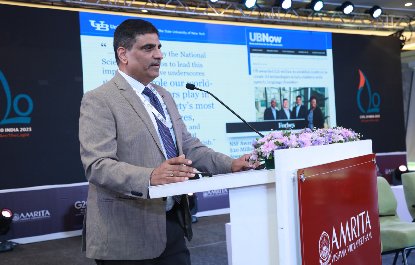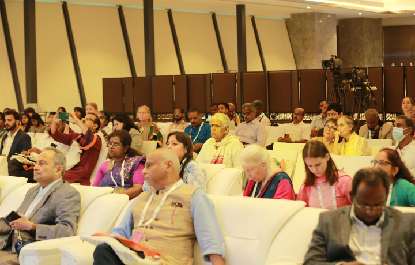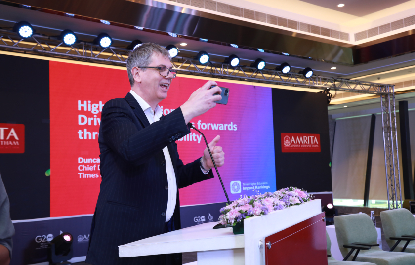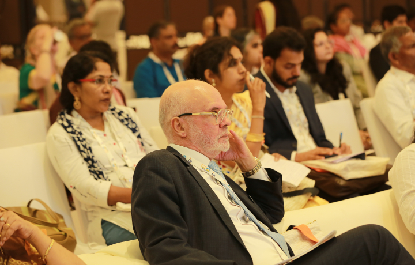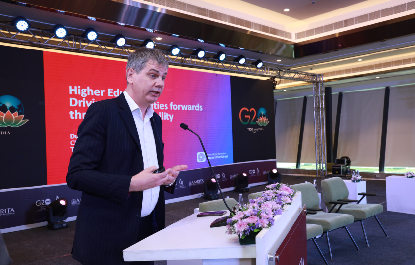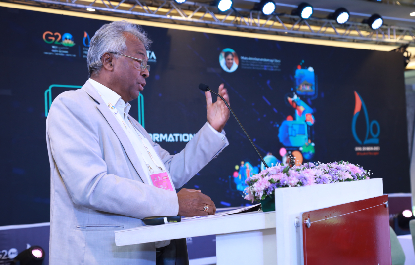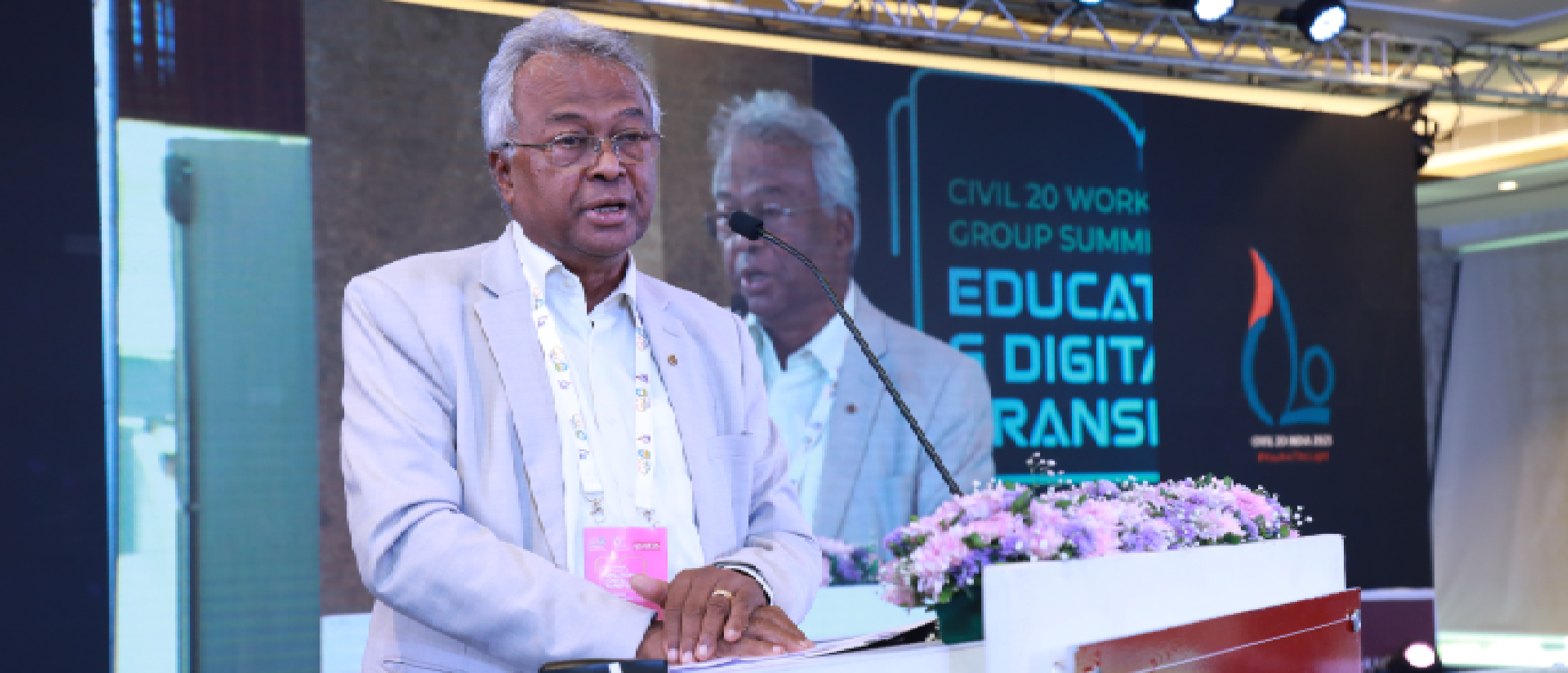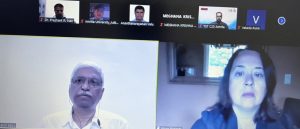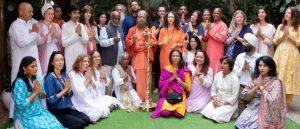A highlight of the Civil 20 Education and Digital Transformation Summit was a series of impactful keynote addresses from thought leaders that left an indelible mark on the minds of all attendees.
The eminent speakers were Prof. Venu Govindaraju, Vice President for Research and Economic Development at the University at Buffalo; Dr. Luiz Claudio Costa Former Vice-Minister of Education, Brazil; Mr. Duncan Ross, Chief Data Officer, Times Higher Education; and Shri. Armoogum Parsuramen, Former Director and Representative of UNESCO and Former Minister of Education, Arts, and Culture.
Prof. Venu Govindaraju discussed AI initiatives addressing various challenges in agriculture and exceptional education. The university received a $20 million grant to establish a center for AI technology to assist children with speech-language disorders. The National Science Foundation (NFS) selected the University at Buffalo to lead this initiative.
Prof. Govindaraju touched upon AI tools to support autism and special learning impairments. The initiative is a collaboration between speech-language pathologists and teachers, and the challenges of low-shot self-supervised learning.
Dr. Luiz Claudio Costa expressed concerns about AI and technology development. He emphasized the need for connectivity, hardware, devices, and affordability to ensure AI reaches everyone, including people with low incomes, citing that 40% of the population in Brazil lacks access to computers. He highlighted the need for education governance, partnerships, and leadership to manage digital information skills effectively. Dr. Costa posed a pertinent question of whether education could provide the necessary skills in a short period to bridge the knowledge gap between the rich and the poor.
Mr. Duncan Ross emphasized the importance of universities in delivering the 17 SDGs, emphasizing their interconnectedness and long-term planning. He suggested incorporating the SDGs into theoretical frameworks, establishing research centers, valuing faculty well-being, and educating students on sustainable living. He spoke about Amrita University’s flagship program Live-in-Labs which aims to reach out to communities and provide educational opportunities. He also emphasized the importance of involving all stakeholders in decision-making processes.
Shri. Armoogum Parsuramen’s keynote address highlighted his diverse career in education, politics, and international organizations like UNESCO and the World Bank. He emphasized his mission to serve humanity, particularly vulnerable groups like individuals with disabilities. He commended Amrita University’s humanitarianism, emphasizing its social development initiatives and human-centered approach.
Shri. Parsuramen emphasized the importance of policy development after research and recommendations, focusing on funding implications and translating recommendations into policies for successful implementation. Parsuramen encouraged the audience to learn from the University’s social development programs and adopt a human-centered approach to addressing society’s needs.
The keynote addresses emphasized AI initiatives, bridging the digital divide, incorporating the SDGs into education, and adopting a human-centered approach to address societal needs.
